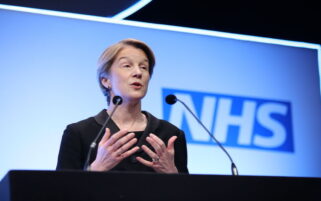Doctors’ leaders are calling for all NHS managers, including GP practice managers, to be subject to statutory regulation and be required to demonstrate they are competent to work in their role.
BMA representatives have said they are worried that healthcare managers are currently able to make decisions that ‘significantly impact upon the public’s health and wellbeing with relative impunity’.
The issue was debated at their annual representative meeting (ARM) held earlier this week, a key event that helps set the trade union’s future policy.
A motion was put forward – and passed – urging for a statutory register to be created for all NHS managers and for it to be an offence for someone to work in a managerial post without being registered.
It also demanded that a new regulator be formed that ensures ‘adequate training and revalidation is completed’, so managers can perform their roles to a ‘demonstrable standard’, and that would hold them to account for actions they take.
Furthermore, BMA leaders agreed that managers should be removed from the register for misconduct, incompetence, negligence or ‘failure to staff healthcare facilities safely’ in order to keep the public and NHS safe.
And they should face penalties if they don’t take reasonable steps to ensure safe staffing.
‘This meeting recognises that NHS and broader healthcare managers including those in non-clinical roles should have a responsibility to enable delivery of safe and effective healthcare provision,’ the motion said (see also box below).
‘It also recognises that resident doctors are often put in high-risk positions through dangerous staffing practices by managers and through contraventions of their working rights and terms and conditions’.
While this referred to health managers in trusts, it was clarified that the motion applied to GP practice managers too and that an amendment to exclude practice managers would not be possible.
Last year, the Government launched a consultation on plans to regulate NHS managers in England, including practice and PCN managers, using mechanisms similar to medical and nursing colleagues. The consultation closed in February.
The Institute of General Practice Management (IGPM) said the issues raised at the ARM are hugely important and that it welcomed the opportunity to contribute ‘to the national conversation around professional accountability in healthcare management’.
Kay Keane, chair of the IGPM, pointed out that it already provides a professional register for practice managers and non-clinical leaders in primary care.
‘This includes a code of conduct, revalidation requirements, and a regulatory framework designed to uphold standards, ensure accountability, and protect patients and staff alike.
She added: ‘We agree that healthcare managers should be held to a professional standard. Where there is evidence of gross misconduct, negligence, or behaviour that puts patients at risk, then yes – appropriate action should be taken. Our professional register already allows for removal in such cases.’
However, Ms Keane further said their organisation wasn’t convinced a separate and brand new statutory regulator was necessary.
‘The IGPM already serves this function within general practice and has the structure, governance, and professionalism to expand this model further. Our view is that the answer lies in building on the systems we already have in place and making sure they are properly supported and recognised nationally.’
She went on to explain that ‘the idea that managers act with “relative impunity” does not reflect the reality in primary care’ adding that, ‘the vast majority of practice managers work incredibly hard, often under significant pressure, to support safe staffing, lead resilient teams, and keep services running in the face of overwhelming demand’.
‘We’d welcome a conversation with the BMA and other stakeholders to ensure any future plans for regulation are fair, consistent, and workable, and that they recognise the systems and standards we already have in place through IGPM,’ Ms Keane added.
What was the motion that BMA doctors voted on?
We… insist that the BMA lobbies relevant stakeholders, including lobbying for legislative change, to ensure that:
i) a new statutory register is promptly formed for all managers not on the medical or dental registers; CARRIED
ii) a new and separate regulator is formed for all such managers so as to constitute the requirements of statutory regulation, including ensuring adequate training and revalidation is completed to perform these roles to a demonstrable standard; CARRIED
iii) it would become an offence to perform in these manager roles whilst not registered; CARRIED
iv) a robust investigatory and tribunal service is established, which may erase managers from the register to protect the public and NHS from acts including but not limited to: misconduct, incompetence, negligence, and failure to staff healthcare facilities safely; CARRIED
v) managers are appropriately scrutinised, and held directly accountable for their actions in post by a regulatory body and the public whom they serve; CARRIED
vi) the CQC or another appropriate body directly determines the definition of safe staffing levels in hospitals and healthcare settings to which managers must adhere; vii) significant penalties would be incurred by managers who do not take reasonable steps to ensure safe staffing, including adequate recruitment, use of bank or agency staff, and where required, closure of units and facilities. CARRIED AS REFERENCE
Source: BMA



